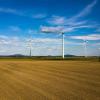The following statistics are from the last 5 full calendar years: 2019-2023
Publications
1
Publications about Portugal
| Title | Type | Publisher | Date Sort ascending | Journal |
|---|---|---|---|---|
| A PRELIMINARY QUALITY ANALYSIS OF THE CLIMATE CHANGE INITIATIVE LAND COVER PRODUCTS FOR CONTINENTAL PORTUGAL | book_section | ISPRS | ISPRS - International Archives of the Photogrammetry, Remote Sensing and Spatial Information Sciences |
43
Publications co-authored with institutions in Portugal
| Name | Type | Publisher | Date Sort ascending | Journal |
|---|---|---|---|---|
| Volunteered geographic information: looking towards the next 10 years | article | Springer | Journal of Geographical Systems | |
| Generating WUDAPT Level 0 data – Current status of production and evaluation | article | Elsevier | Urban Climate | |
| Using OpenStreetMap (OSM) to enhance the classification of local climate zones in the framework of WUDAPT | article | Elsevier | Urban Climate |
Pagination
- First page
- Previous page
- 1
- 2
- 3
- 4
- 5
1
Publications by IIASA researchers from Portugal
| Title | Type | Publisher | Date Sort ascending | Journal |
|---|---|---|---|---|
| Granular technologies to accelerate decarbonization | article | American Association for the Advancement of Science (AAAS) | Science |
Projects
317
Projects related to Portugal
| Name | Start | End Sort ascending | Abbreviation | Classification |
|---|---|---|---|---|
| QuantMig: Quantifying Migration Scenarios for Better Policy | 2020 | 2023 | QuantMig | Multi-Regional / Country |
| FORCeS: Constrained aerosol forcing for improved climate projections | 2019 | 2023 | FORCeS | Multi-Regional / Country |
| Model based Assessment of EU Climate Policies - Part II | 2021 | 2023 | EUCLIMIT VI | Multi-Regional / Country |
| Analysis of air pollutant emission trends towards 2050 for EU energy intensive industry sectors | 2022 | 2023 | SR3-AQ | Multi-Regional / Country |
| Modelling of non-CO2 greenhouse gas emissions, and of related mitigation options for EU Member States, associated with a POTEnCIA decarbonisation scen | 2023 | 2023 | JRC-SR2 | Multi-Regional / Country |
| REmote Climate Effects and their Impact on European sustainability, Policy and Trade | 2019 | 2023 | RECEIPT | Multi-Regional / Country |
| Multiple Impacts CAlculations Tool | 2020 | 2023 | MICAT | Multi-Regional / Country |
| EuroGEOSS Showcases: Applications Powered by Europe | 2019 | 2023 | E-SHAPE | Multi-Regional / Country |
| Role of drivers of emissions from agriculture and LULUCF sector in 2040 and beyond | 2022 | 2023 | SR7/LULUCF2040 | Multi-Regional / Country |
| European Topic Centre for Biodiversity and Ecosystem 2023 | 2023 | 2023 | ETC BE 2023 | Global |
Pagination
0
Projects sponsored by funders from Portugal
Engagement
7
Number of times participants from Portugal joined IIASA events
1
Number of times visitors from Portugal came to IIASA
34
IIASA staff visits to Portugal
People
1
- Women
- Men
Staff members from Portugal
9
- Women
- Men
- Unknown
Total number of alumni from Portugal
News

25 January 2023
Driving inclusive and green urban transitions
A new Horizon Europe project led by IIASA called Urban ReLeaf leverages citizen science for public sector innovation.

26 November 2020
Monitoring biodiversity and ecosystems in Europe
IIASA is collaborating with 14 partner institutions from Belgium, Bulgaria, Estonia, Germany, the United Kingdom, the Netherlands, Portugal, and Spain on a new research project aimed at developing a transnational system for monitoring biodiversity and ecosystems in Europe.
Focus
02 October 2023
Feasible futures
Policy Brief #41, October 2023. Embracing the notion of feasibility, this research shows that the world will probably overshoot
1.5°C, largely owing to low institutional capacity. Energy demand reduction and electrification are two options to turn down the heat, and addressing weak institutions is crucial.

28 November 2022
Standardizing migration data in Europe
Options Magazine, Winter 2022: Researchers illustrated the discrepancies in migration flow statistics across Europe to help standardize data and better understand migration patterns.



